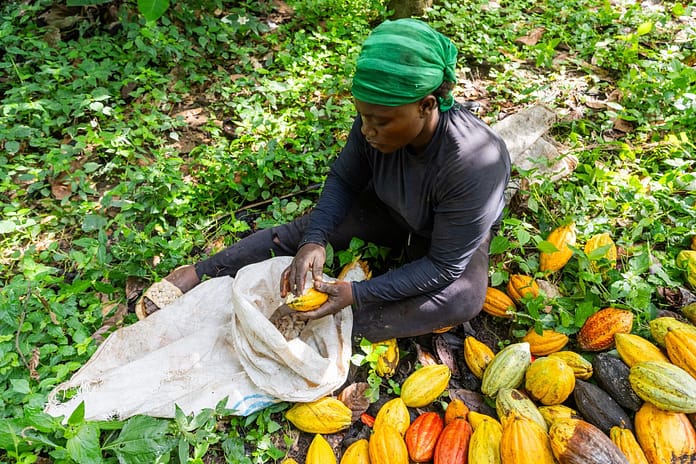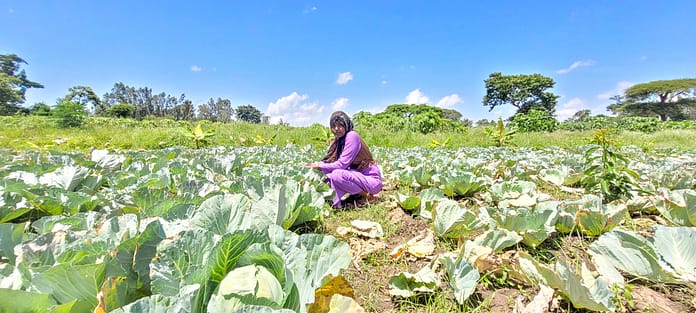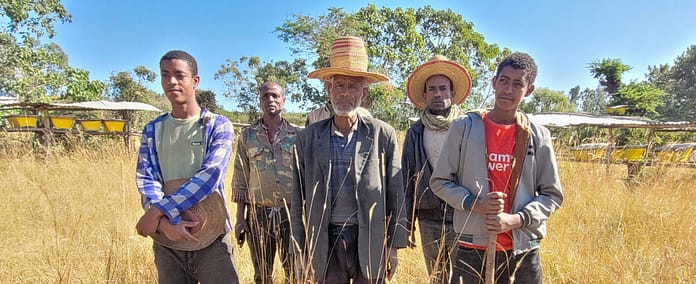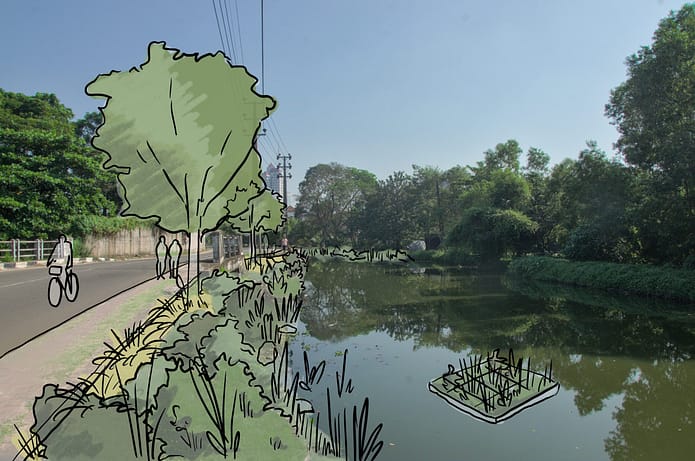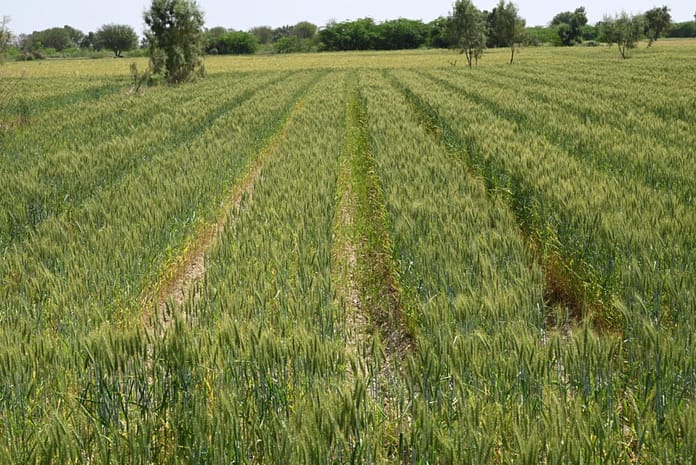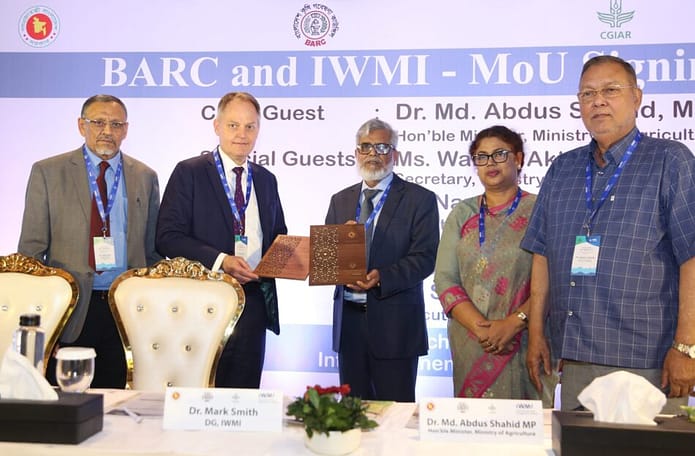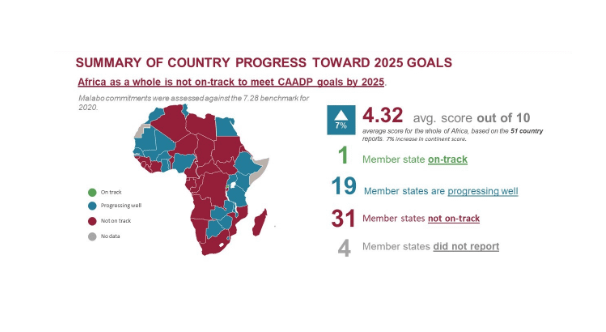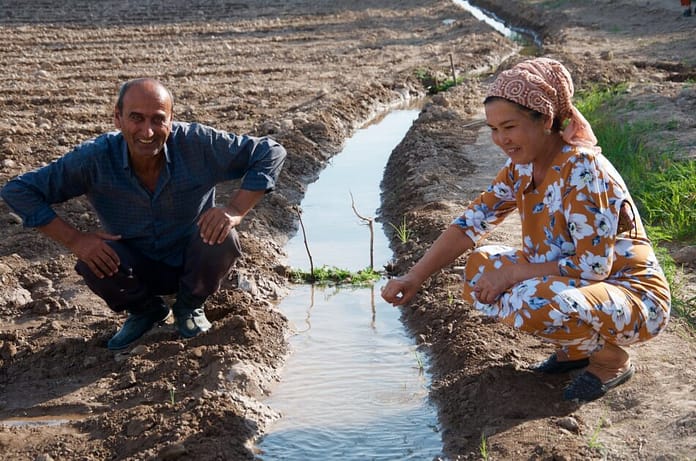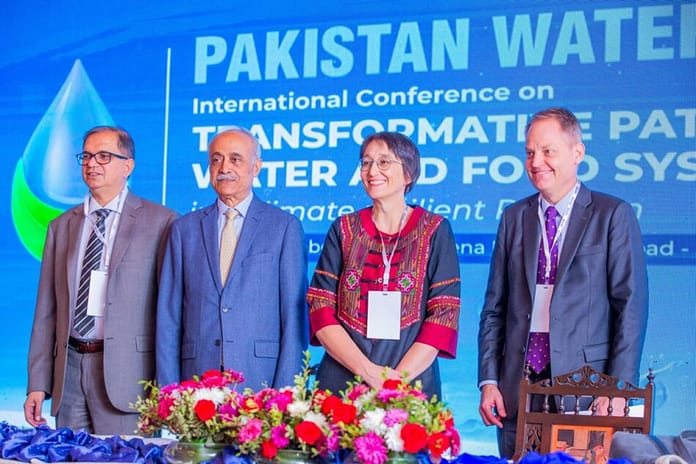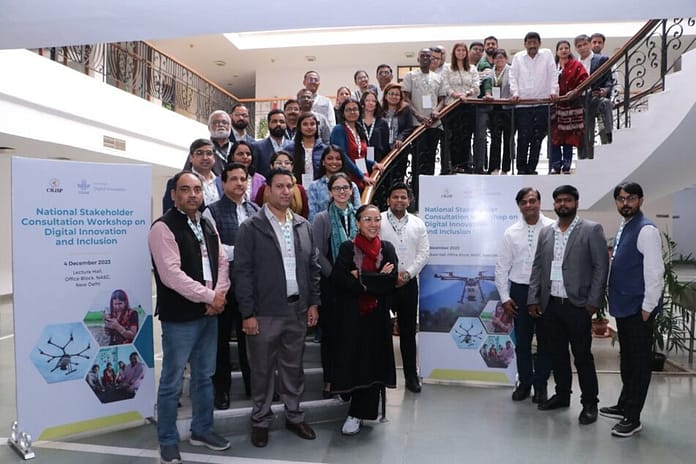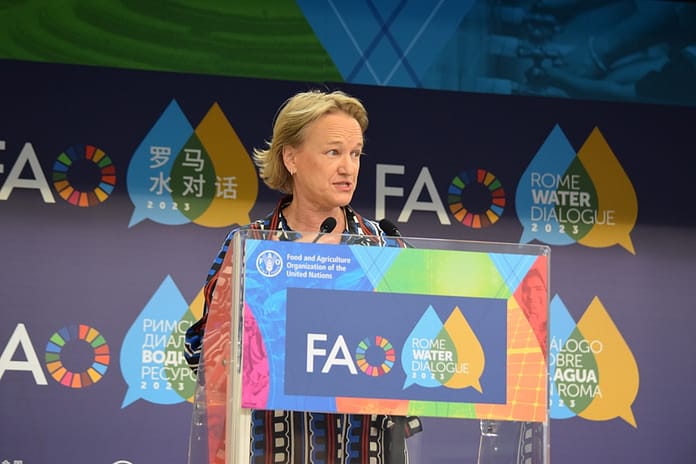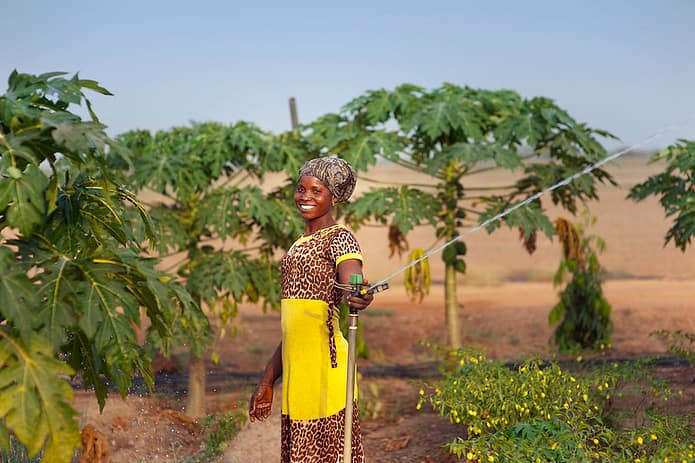Rice farming in Pakistan. Photo: Faseeh Shams / IWMI
But despite uncertainty about the precise impact of climate change, it argues that the development of more resilient food production systems based on smarter water use is the most effective response.
“It’s quite simple: for the world to feed 9.6 billion people in 2050, it needs to significantly improve water management to produce more food, meet the increasing demands of other water users, and address the challenges created by climate change,” said Peter McCornick, Deputy Director General – Research, IWMI, and one of the lead authors of Tackling Change: future-proofing water, agriculture and food security in an era of climate uncertainty.
The report, which synthesizes several years of IWMI research, was funded by the CGIAR Research Programs on Climate Change, Agriculture and Food Security (CCAFS), and Water, Land and Ecosystems (WLE).
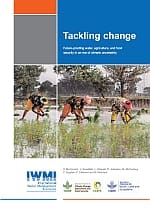
With around 95% of farmers in sub-Saharan Africa already depending on often unreliable seasonal rains and sharp declines in groundwater in parts of Asia – largely due to demands from agriculture and competition from industry and cities – water shortages are likely to make food production in these areas increasingly precarious.
Now, projected rises in average temperature, more extreme weather, and changes in precipitation patterns are expected to exacerbate the problem further, affecting vast swaths of arable land. But uncertainty over exactly what the effects will be, should not stall efforts to reduce the risks to farmers, the authors warn.
“What’s certain is that these changes, from climate and other factors, are not going to wait for us,” continued McCornick. “This means we have to be clear about our priorities and make significant investments in ‘no-regrets’ solutions for improving water storage and water access, and sustainably boosting farm productivity that make sense regardless of the impact of climate change.”
“If we‘re not proactive, we’re very likely to see climate change intensify the stresses on our water resources, especially in many of the world’s poorest and most water-scarce countries. As well as threatening food production at the farm level, this could also cause lasting damage to complex ecosystems that currently support hundreds of millions of people.”
The report details a range of options for governments and communities to “future-proof” food production, which, if combined, could significantly improve the use of water in agriculture. These range from small-scale methods for storing rainwater on-farm and using it more efficiently to large infrastructure investments, such as dam and reservoir construction. Underground water storage – to capture floodwater – is highlighted as one promising new avenue of research.
It also stresses the need for more equitable access to water for women and marginalized groups to ensure they are not disproportionately burdened by the effects of climate change, and flags the need for improved institutional processes to ensure water management policies are implemented effectively.
“We‘ve seen that we can enhance livelihoods and food security through a research agenda that explicitly links improved agricultural water management, food security, and climate change, and that works to understand and reduce the vulnerabilities of farming households,” continued McCornick. “Now we need to redouble efforts to fine-tune and implement these solutions, to build the resilience of smallholders and the food production system as a whole.”



